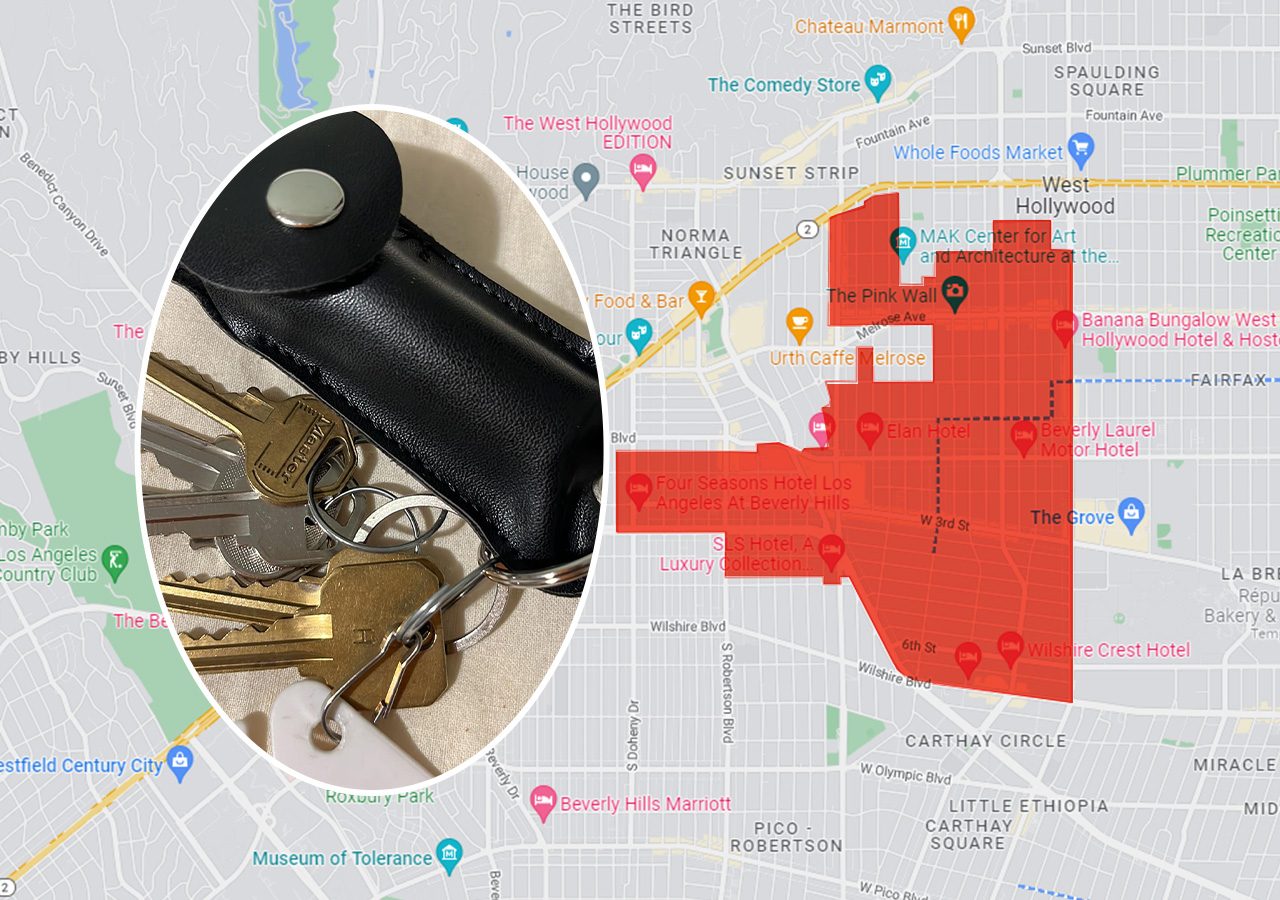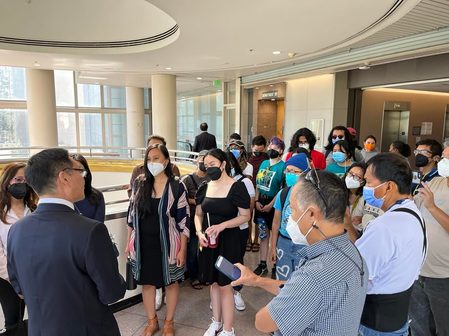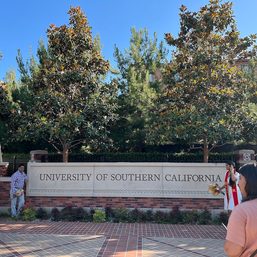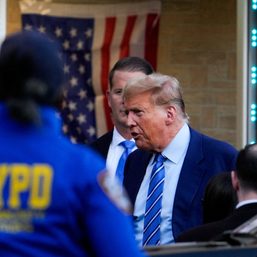SUMMARY
This is AI generated summarization, which may have errors. For context, always refer to the full article.

LOS ANGELES, USA – Mace and keys: Those were my security blanket for eight years working as the person in charge of opening and locking a bustling movie makeup store on Melrose Avenue, Los Angeles.
Day or night, walking to work and back home in the same neighborhood, a hand was never far away from that twin set.
Moving to Beverly Grove, a bustling shopping and dining district, where I’ve spent the last 15 years, was like graduation. No more mace. I had leisurely walks to The Grove and back, confident in the familiar faces, including the homeless person by the gas station.
Not anymore. A friend has just redesigned the mace-keys set. It’s always with me now when I need to leave the house in the early evenings.
I’ve been concerned about the rise in violent crimes in Los Angeles and across the United States. But it only became real when I was mugged on December 27, 2021 in front of the Wells Fargo branch on Fairfax.
My phone clock showed 8:01 pm as I placed it inside my large bag with the just withdrawn $500 cash from the ATM. Suddenly, I heard footsteps running towards me.
I looked back and saw two men in dark colored hoodies and face masks grabbing my purse. I let it go only after a struggle.
Not content, they also snatched my lunch bag until it ripped. They shoved and I fell on the sidewalk.
As the two hurriedly headed to a waiting car in the parking lot, I screamed for help. Two good Samaritans offered; one of them who saw the snatching called the police. Authorities arrived 20 minutes later.
Fortunately, the attackers did not use any weapon and I only had soreness in my right arm. A detective was assigned to investigate. I could not identify my attackers so did not pursue filing charges.
The spike in crimes is not unique to LA, according to the Public Policy Institute of California, which compiles data from other major cities in the state.
A Los Angeles Times investigation revealed a 24% drop in burglaries in areas patrolled by authorities. But these figures are being questioned, considering most crimes against property are not reported.
“There seems to be a pervasive attitude because of the feeling that authorities cannot do anything to solve the crime,” John Kawakami of the Progressive Asians for Neighborhood Action (PANA) said.
Kawakami observes that the rise in criminality targets the vulnerable, especially seniors who are robbed mostly of their expensive jewelry, and these go unreported.
After the burning of an elderly Asian in New York in 2020, PANA began their neighborhood walks around our LA community, knocking on doors of those living in senior apartments in Koreatown to check on them or simply make them feel connected.
Life is not that easy for migrants like me in the US. Aside from dealing with random criminals who took my bag, money, debit and credit cards, I also experienced verbal hate in May last year at the parking lot of the Church of the Good Shepherd.
An African-American homeless person who regularly begged for money yelled: “Why are you poor people here in Beverly Hills? You should go back to your own country. You should go back to the Philippines.”
The four of us who just got out of the car were Filipino women. We were shocked. Instead of engaging with him, we walked away, perhaps because of charity. As volunteers of the parish’s “Feed My Poor” homeless feeding project, we knew the homeless person.
Aquilina Soriano Versoza of the LA-based Pilipino Workers Center said they conduct bystanders training with Asian Americans Advancing Justice to equip Filipinos with a better understanding of how to react when they witness hate attacks.
There are different strategies, whether to distract or deescalate, or to help the victim and witness to safety.
Anti-Asian crime in California increased from 89 cases in 2020 to 247 in 2021, State Attorney General Rob Bonta reported in July.
This data also reflected figures from the Commission of Human Relations of LA, showing a 76% increase in hate crimes since the start of the COVID-19 pandemic.
One of the latest cases involved an attack on a family at a North Hollywood parking lot by a man who was on probation for three other previous cases.
The number of hate incidents may be higher since a lot go unreported, Cathy Miraballes of Migrante Los Angeles said.
She cited reasons such as survivors’ immigration status, the fear of retaliation, the lack of support from the community or the Philippine consulate, the inability to take time off work to follow up the case, and the expense of hiring a lawyer.
The Philippine consulate on Tuesday, August 30, gathered Filipino-American community leaders and tackled the issue of hate with LAPD officials.
In an earlier statement, Consul Francis Maynard Maleon urged the community to be vigilant and report hate crimes or incidents, including calling the consulate for assistance.
Maleon said the consulate has tapped the Philippine American Bar Association for free legal aid.
Filipino groups in LA like the Filipino Migrant Center are currently involved in campaigns, including demanding justice for the Roque family, recent victims of anti-Asian assault.
PWC also recently launched its “Stop the Hate” campaign, engaging in community awareness and building solidarity with the wider community on the issue.
Soriano-Versoza also urged everyone to be more vigilant and help build a strong and solid response against hate, holding accountable public officials and leaders who made racism a scapegoat for problems in society, pitting people of color against each other:
In the meantime, Kawakami said, as immigrants struggling to stop the hate, “you just have to defend yourself, and if you are able, fight.”
Whether faced with a plain crime or a hate attack, Filipinos like me have become cautious and wary of our surroundings. Anything can happen while walking on the street, shopping in the mall, or on the bus or train, or a wait station, or in parking lots or public parks.
Anything can happen. That’s why for me, the mace is a helpful companion. – Rappler.com
Add a comment
How does this make you feel?






There are no comments yet. Add your comment to start the conversation.